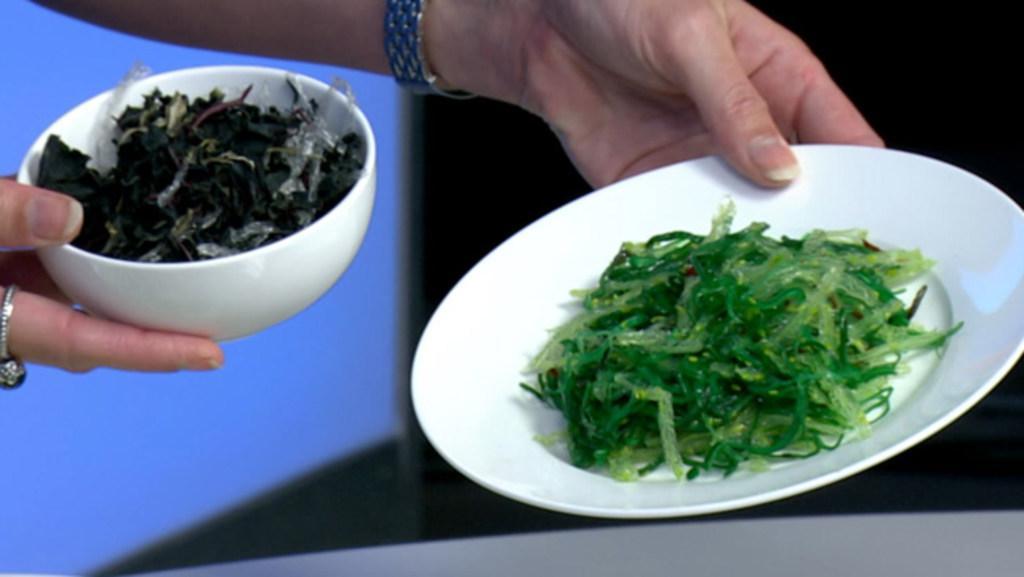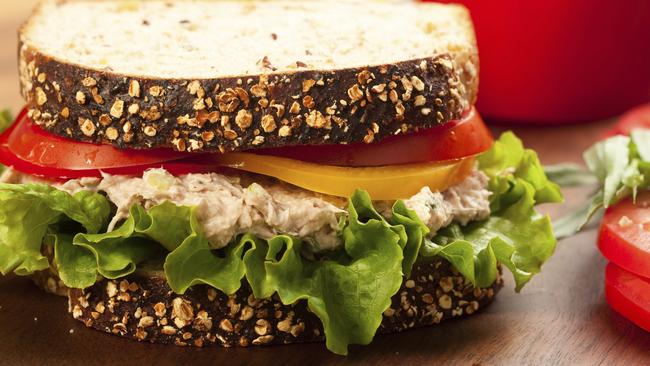The mood boosting foods that will put a smile on your face
IT TURNS out food fuels more than your body — it also feeds your mood. So instead of reaching for a quick-hit bar of chocolate, try these foods instead.

Health
Don't miss out on the headlines from Health. Followed categories will be added to My News.
IT TURNS out food fuels more than your body — it feeds your moody, bitchy, stressed-out state! But before you reach for the Ben & Jerry’s, is it possible to plan a diet for a longer lasting pick me up?
Your eating habits play a big role in determining your disease risks. But the link between what you eat and your mood is much more immediate. Here are five ways you can better your mood with food.
1. Blood Sugar
Fluctuations in your blood sugar levels can have an incredible impact on how you feel. Concentrated sources of added sugar (soft drinks, fruit juice and sweets) or refined starches (white bread, rice crackers) can cause radical spikes in blood sugar, providing a temporary sense of feel-good before sharply crashing into the pit of despair, ultimately leaving you feeling cranky and irritable.
The Fix: Switch to high-fibre carbohydrates (like oats, wholemeal, brown rice, whole pieces of fruits and veggies). Combine this with protein at most meals and snacks to keep your blood sugar (and moods) stable.
2. Running on empty
Have you ever noticed that people on diets are really crabby? They’re most likely “hangry”, often due to erratic eating habits or aggressively cutting calories to lose weight. While many might solely blame low blood sugar or a general lack of pleasure, research has shown changes in brain chemistry, such as higher levels of cortisol (stress hormones) when calories are severely restricted. What’s more, excess levels of cortisol causes food cravings, and in women those cravings tend to be strongest for carbs, especially sweet/fatty foods, so you become even more crabby every time you eat something not in your plan.
The Fix: Work on establishing a regular eating pattern that will keep you from getting overly hangry, and reconsider the whole notion of dieting as a temporary fix, but rather a permanent lifestyle shift.

3. Flimsy on the fats
Your brain consist of at least 60 per cent fat, in particular the omega-3 kind. Our bodies can’t make these essential fatty acids, so we need to get them from food. These fats play an important role in healthy brain function and research suggests that low omega-3 levels are associated with mood disorders, such as depression.
The Fix: Fear fat no more and think twice about buying “low-fat” snacks. Instead, opt for healthy fats found in oily fish (salmon, tuna, mackerel, sardines), walnuts, flaxseeds, chia seeds and canola oil. Fish oil supplements may also be beneficial. Consult your doctor for specific advice.
4. Going against the grain
Limiting carbohydrates affects the brain’s ability to create serotonin — a feel-good brain chemical responsible for making us feel content. Without that mood-booster, research has shown that low-carb dieters had higher scores on anger-hostility, confusion-bewilderment, and depression-dejection scales. Besides, our brains heavily rely on glucose and there’s good reason to believe that having a steady flow of it is crucial for optimal mental functioning.
The Fix: If this sounds like you, it might be helpful to toss some legumes or a wholegrain wrap with your salad.

5. Mixing important nutrients
Among its myriad functions, iron is involved in the transport of oxygen in the blood. Getting too little iron could lead to fatigue, irritability, low immune function and even anaemia. Highly absorbable iron-rich foods include lean red meat and poultry, and smaller amounts in fish. Vegetarian and vegan diets are generally high in iron from plant foods (legumes, green leafy), however the iron is not absorbed as well.
The Fix: The National dietary guideline recommend no more than 455g of cooked lean red meat each week. This means no more than 65g a day or larger portions every second day. No meat? Be sure to combine plant-sources of iron with vitamin C rich foods, like citrus fruits, berries, tomatoes and capsicum to help enhance iron’s absorption.
Bottom line: When it comes to improving your mood, don’t expect miracles from one particular food. Eating a healthy, balanced diet that includes plenty of variety and colour, in sensible amounts is key to both health body and mind.
MORE: 10 foods to lift your mood
Kathleen Alleaume is a nutrition and exercise scientist and founder of The Right Balance. Twitter: @therightbalance

Originally published as The mood boosting foods that will put a smile on your face






